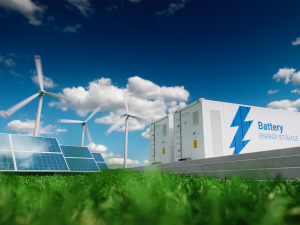US-based renewable fuels company Raven SR entered the spotlight this week when it revealed it had attracted a consortium of investors from around the world for a combined US$20 million investment in the business.
Wyoming-based Raven attracted energy giant Chevron, hydrogen-powered fuel cell maker Hyzon Motors, one of Japan’s largest trading houses ITOCHUand Ascent Hydrogen Fund, a US-based energy platform seeking investment opportunities in the hydrogen sector, for the funds, which will be used for the build of modular waste-to-green hydrogen production units and renewable synthetic fuel facilities.
The raising follows recent news that Raven and Hyzon had entered an agreement to build up to 250 hydrogen production facilities across the US and globally.
Unlike alternative approaches to waste disposal, such as incineration or gasification, Raven’s steam/CO2 reformation process involves no combustion, making the company one of the only combustion-free, waste-to-hydrogen producers in the world.
The process is designed to reduce emissions and produce more green hydrogen per tonne of waste than competing processes. It is also able to produce other renewable energy products such as synthetic liquid fuels, additives and solvents such as acetone, butanol, and naphtha, and electricity via microturbines.
Raven’s modular and scalable units can also produce sustainable aviation fuel, an increasingly important component of the global aviation industry’s decarbonisation efforts.
“We are grateful for our investors’ recognition of Raven’s technology, which transforms organic waste into renewable hydrogen and synthetic fuels for commercial and passenger vehicles and airplanes,” Raven CEO Matt Murdock said.
“Today, we’re excited to start working with our partners on realising our global vision of zero-emission transportation, on land and in the skies, through locally sourced and produced renewable fuels, while reducing waste in our landfills and their accompanying emissions.”
Mr Murdock said the new funding reflected growing consumer demand for clean energy and renewable fuels that will have a positive impact in addressing climate change.
Raven’s first renewable fuel production facilities will be built at landfills and will produce fuel for Northern California hydrogen fuel stations and for Hyzon’s hydrogen hubs. The units are expected to process about 200 tons of organic waste per day, yielding green hydrogen and producing on-site energy to be as autonomous as possible.

